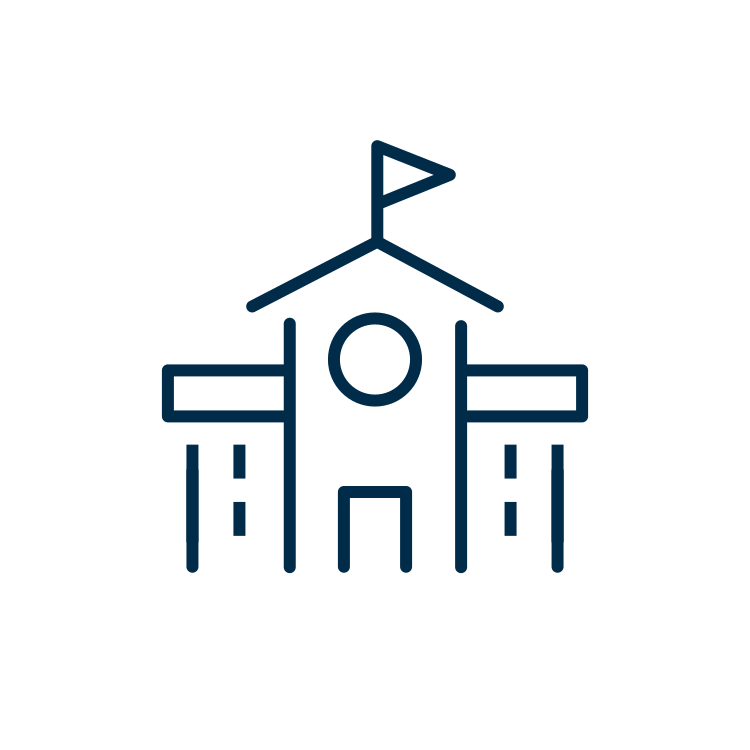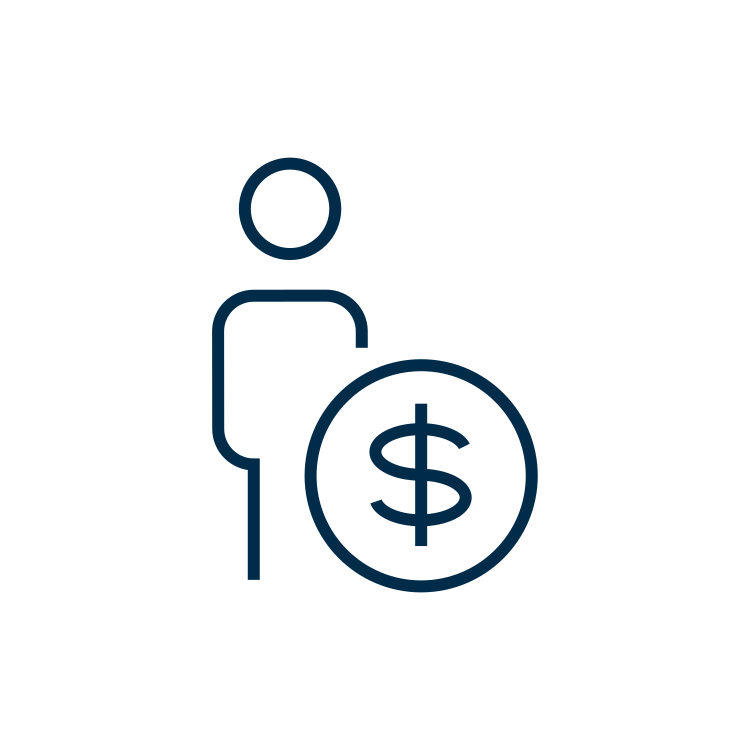Government mail service may be affected by the Canada Post labour disruption. Learn about how critical government mail will be handled.
Budget 2025: helping build Alberta’s workforce
The post-secondary education system plays a crucial role in Alberta’s economy and society.
Budget 2025 is meeting the challenge of a rapidly growing population with continued investments in post-secondary education and supporting a sustainable post-secondary education system that’s preparing students for the jobs of tomorrow.
Alberta's government is continuing to build the workforce we need today and for the future to grow and diversify our economy. Budget 2025 recognizes the significant role post-secondary institutions play in meeting the needs of that economy. By addressing labour demands, creating jobs, attracting talent and investment, and driving the economy, we are helping ensure Albertans have the skills and training to meet the demand for labour and expertise.
Investment highlights
-

$6.8 billion for post-secondary education
Budget 2025 recognizes the crucial role post-secondary institutions play in meeting the needs of Alberta’s economy.
-

$1.5 billion in capital investment
Budget 2025 invests in crucial capital projects to make sure our students have the best learning facilities available.
-

$234 million over 3 years for skilled trades and apprenticeship training
Our investment in skilled trades and apprenticeship programs is helping drive career growth and workforce development for Albertans.
-

Nearly $1.2 billion in direct support to students
Through scholarships and awards, grants, and loans, Budget 2025 ensures Alberta’s students receive direct support for their studies.
-

$1.8 billion in operating and program support
Through operating and program support grants, we provide comprehensive support to Alberta’s post-secondary institutions.
-

$312 million over 4 years to create seats in high-demand programs
Through the Targeted Enrolment Expansion Initiative, we’re creating over 15,000 new seats in programs that support high-demand industries.
Investing in tomorrow's economy
Alberta's government partners with post-secondary institutions across the province to analyze industry trends, identify economic opportunities and invest in forward-thinking solutions.
Building the skilled trades
As part of more than $2 billion we are investing in adult learning through Budget 2025, a total of $78 million will be invested per year into skilled trades and apprenticeship training, or $234 million over the next 3 years.
Some recent investments include:
- $5 million through Budget 2025 for a new grant program, which will support union training providers to deliver funded apprenticeship classes in high-demand trades.
- $1.5 million over 3 years to support Trade Winds to Success in the delivery of their Residential Construction Program.
- $300,000 toward Helmets to Hardhats to help veterans, reservists and others in the military community bridge the gap between their military service and Alberta’s growing demand for skilled labour.
- $11.3 million for a state-of-the-art power engineering lab at Northwestern Polytechnic to support the growing demand for power-engineers in northwestern Alberta.
- $350,000 to support the International Union of Operating Engineers Local 955 in delivering training for the Crane and Hoisting Equipment Operator – Mobile Crane Operator apprenticeship program.
- Almost $900,000 in funding to the TELUS Spark Science Centre in Calgary to create a series of exploration spaces designed to encourage young people to pursue a career in the trades.
We are investing $10 million per year, or $30 million over the next 3 years, to modernize our apprenticeship programs to meet the changing needs of industry and apprentices.

Budget 2025 is strengthening health care
Training more doctors
To increase the number of student spaces in the Doctor of Medicine programs at the University of Alberta and University of Calgary we have invested a total of nearly $38 million over 4 years to create 180 new seats for training more doctors, with the first intake beginning in 2023/24. Over $12 million of this funding is being provided through Budget 2025.
Improving access to health care in rural and remote areas
To improve access to physicians for Albertans in rural and remote areas, we’re investing $43.2 million in capital funding over 4 years and $55.6 million to support operating expenses over the next 3 years. This investment will create Rural Medical Education Program Training Centres in Lethbridge and Grande Prairie. Through Budget 2025, Alberta's government will continue to support this commitment by providing over $18 million, out of the total funding, in the 2025-26 fiscal year.
Investing in mental health
We are investing $10 million over 3 years, including $4 million in 2025-26, to add more than 760 new seats to in-demand mental health professional programs at Alberta’s post-secondary institutions.
The creation of new program seats will enable institutions to increase program capacities, improve educational offerings and prepare a new generation of mental health professionals to meet the emerging needs of our communities.
Mental health on campus
Students have told us that mental health services on campus are essential. We will continue to demonstrate our commitment to student mental health through ongoing dedicated funding to mental health programming and services on post-secondary campuses.
We are investing $8.7 million to foster healthy campuses and support student mental health.

Developing more talent in Alberta
To keep up with demand, we are expanding high-demand post-secondary programs throughout the province, allowing students to upgrade skills or re-train for a new career closer to home.
Meeting aviation demand
Our government is committed to addressing the skilled labour shortage in the aviation industry. To do this, we're committing $6 million over 3 years to establish and grow Mount Royal University’s new Bachelor of Aviation Management program, enrolling 120 students. Budget 2025 supports continued growth in Mount Royal University’s Bachelor of Aviation Management program, providing $2.5 million out of the total $6 million investment promised in 2023-24.
Bridging the gap for internationally educated nurses
We have invested more than $18 million to create over 1,800 additional seats in new and expanded nurse bridging programs for Internationally Educated Nurses (IEN) at post-secondary institutions across the province.
Expanding technology talent
From 2018 to 2026, through 3 rounds of seat expansion, Alberta’s government is providing $25.9 million to create more than 3,100 additional seats in technology programs.
Capital projects
As part of our plan to ensure the best learning facilities for Albertans, we have new and ongoing capital projects over the next 3 years.

$100 million through Budget 2025 to transform the Biological Sciences Centre.

A $55 million investment to add 2,000 seats annually.

An investment of $43 million to add 4,200 seats annually.

An investment of $30 million to create new student-focused spaces.

$63 million to add 440 seats for trade programs and 100 dual credit programs.

An investment of $1 million for additional classroom and lab spaces.

$12.9 million to offer programs to 450 post secondary students, an additional 2,000 students annually by 2030.

$4 million for expansion planning.

$2 million for additional labs and classroom spaces.
Making post-secondary education more affordable
Through Budget 2025, Alberta is investing nearly $1.2 billion to help Alberta’s students access a post-secondary education.
- $991 million in Alberta student loans will help an estimated 121,900 students
- $113 million in scholarships and awards to support approximately 57,100 students
- $70 million in grants to about 18,900 students
In response to the inflationary pressures we have seen over the past few years, Alberta’s government introduced the following affordability measures to ensure post-secondary education is accessible and affordable:
- Increased annual loan limits by $1,000 per semester, to $8,500, to help address tuition increases at post-secondary institutions.
- Capped domestic tuition increases at public post-secondary institutions (excluding the Banff Centre for Arts and Creativity) to 2% annually, beginning in the 2024/25 academic year.
- Reduced the interest rate on Alberta Student Loans.
- Extended the interest-free grace period from 6 months to 12 months after a student completes their studies.
- Modernized student aid shelter allowances to better reflect actual rental housing costs faced by most post-secondary students.
To support graduates with student loans, we have increased the Repayment Assistance Plan income threshold from $25,000 to $40,000 for single borrowers, effective July 1, 2023.
Additionally, to give domestic students better predictability for their tuition fees, exceptional tuition increases* will not be approved for the 2025/26 academic year.
*Exceptional tuition increases occur when an institution is approved to increase tuition for the purpose of improving quality of a specialization within a program (for example, Chemistry is a specialization within a Bachelor of Science program). These increases are not included in the 2% tuition cap.